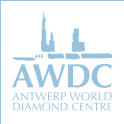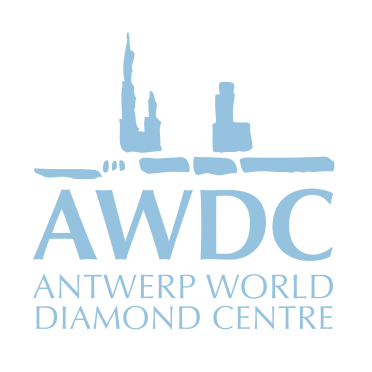Rough diamonds - Kimberley Process Certification Scheme
FiltersThe United Nations General Assembly created The Kimberley Process Certification Scheme ("KPCS"). The KPCS imposes extensive requirements on its members to enable them to certify shipments of rough diamonds as ‘conflict-free’ and prevent 'conflict diamonds' from entering the legitimate trade.
Pursuant to the KPCS rough diamonds (HS codes 71021000, 71022100, 71023100) can only be imported or exported if they are accompanied by a valid Kimberley Process Certificate ("KP Certificate").
The import into and export from the EU of rough diamonds is only allowed between countries that participate in the KPCS.
At the moment of writing, the KPCS has 54 members, representing 81 countries, with the EU and its member states counting as one individual participant
Angola
Guyana
Russian Federation
Armenia
India
Sierra Leone
Australia
Indonesia
Singapore
Bangladesh
Israel
South Africa
Belarus
Japan
South Korea
Botswana
Kazakhstan
Sri Lanka
Brazil
Laos
Swaziland
Cambodia
Lebanon
Switzerland
Cameroon
Lesotho
Tanzania
Canada
Liberia
Thailand
Central African Republic*
Malaysia
Togo
Chinese Taipei
Mali
Turkey
China
Mauritius
Ukraine
Côte d’Ivoire
Mexico
United Arab Emirates
Croatia
Namibia
United States of America
European Union
New Zealand
Venezuela*
Ghana
Norway
Vietnam
Guinea
Panama
Zimbabwe
Republic of Congo
Countries not listed above are not participants in the KPCS. The countries indicated with an asterisk (*) are participant in the KPCS, but do not meet the minimum requirements of the KPCS.
With respect to Côte d’Ivoire, the UN Security Council agreed on 29 April 2014 to terminate sanctions imposed on diamond imports from Côte d’Ivoire. The decision was made “in light of progress made towards the Kimberley Process Certification Scheme (KPCS) implementation and better governance of the sector.”
As the KPCS has no legislative power, its decisions are implemented through the legislations of the participants. As a consequence, EU Regulation No 2368/2002 (as amended) implements the KPCS in the EU and Belgium.
Venezuela has voluntarily suspended exports and imports of rough diamonds until further notice and the export of diamonds from Cote d'Ivoire is currently under UN sanctions
The Central African Republic has been temporarily suspended until clarity is provided on the country's ability to ensure compliance with the KP minimum standards. The publication in the Official Journal of the European Parliament of the amendment to the KP Regulation removing the Central African Republic from the list of KP Participants can be found here.
- Conditions
The import of rough diamonds into the EU including Belgium is prohibited unless the following cumulative conditions for import are fulfilled:
- The rough diamonds are imported from a country which participates in the KPCS;
- The rough diamonds are accompanied by a valid KP Certificate clearly identifying the consignment; and
- The rough diamonds are contained in a sealed tamper resistant container.
- Verification by a EU authority
When imported into the EU, all containers and certificates must be submitted for verification as soon as possible to a designated EU authority.
If there is a EU authority in (a) the member state where the rough diamonds are imported or (b) the member state for which they are destined, the containers and certificates should be submitted for verification to the EU authority in the importing member state or the member state of destination.
If there is no EU authority in the member state of importation or destination, the containers and certificates are submitted for verification to a EU authority in another member state. The customs authorities of the importing member state register the shipment of rough diamonds for customs transit, which allows the transfer of the rough diamonds to a EU authority in another member state.
There are seven EU authorities. Contact details of the seven EU authorities can be found here. The EU authority in Belgium is the Licence Service of the Federal Public Service Economy.
The EU authority may physically verify that the content of the container matches the particulars of the certificate.
When submitting the containers for verification to the Licence Service of the Federal Public Service Economy, the importer also needs to file the invoice and import licence.
If the conditions for import are fulfilled the EU authority confirms so on the original certificate and provides the importer with an authenticated copy of the confirmed certificate. The importer must keep authenticated copies of the KP Certificates and the corresponding invoices for at least three years.
- Conditions
The export of rough diamonds from the EU including Belgium is prohibited unless the following cumulative conditions for export are fulfilled:
- The rough diamonds are exported to a country which participates in the KPCS;
- The rough diamonds are accompanied by a valid KP Certificate issued by a EU authority; and
- The rough diamonds are packed in a sealed tamper resistant container.
- Verification by a EU authority
In order to obtain a KP Certificate for export, the exporter must provide the EU authority with conclusive evidence that the diamonds for export were lawfully imported into the EU, such as a purchase invoice or a KP certificate issued when the diamonds were imported into the EU.
Before issuing a KP Certificate for export, the EU authority will verify whether the information on the certificate for export is correct. The EU authority may also physically verify that the content of the containers matches the particulars on the certificate. After inspection, the EU authority seals the tamper resistant container with the rough diamonds.
In Belgium, when submitting the containers for verification, the exporter also needs to file the invoice and export licence.
If the conditions for export are fulfilled the EU authority provides the exporter with an authenticated copy of the validated certificate. The exporter must keep authenticated copies of the KP certificates and the corresponding invoices for at least three years.
Members of certain listed diamond organisations can use the so-called fast track procedure. Under that procedure,the exporter has to file the invoice containing a signed guarantee of the exporter. However, this does not exempt him from the obligation to keep records of all his purchases and imports of rough diamonds. (see below). The conclusive evidence must be submitted to the Licence Service of the Federal Public Service Economy which is entitled to issue and validate KP Certificates for export of rough diamonds from the EU. Contact details of the Licence Service of the Federal Public Service Economy can be found here.
Pursuant to EU Regulation No 2368/2002 (as amended), organisations representing traders in rough diamonds can establish a system of warranties and industry self-regulation for the purposes of implementing the KPCS.
Diamond organisations are listed in Annex V of EU Regulation No 2368/2002 if they provide the European Commission with conclusive evidence that they adopted rules and regulations obliging the organisation and its members to comply with the requirements of EU Regulation No 2368/2002.
- Requirements
Diamond organisations establishing a system of warranties and industry self-regulation must ensure compliance with the following requirements of EU Regulation No 2368/2002:
- Sell only diamonds purchased from legitimate sources;
- Not buy rough diamonds:
- from suspect or unknown sources of supply;
- originating from non-participants in the KPCS;
- from sources found to have violated government laws and regulations concerning the trade in 'conflict diamonds';
- in, or from, any region that is the subject of an advisory notice from a governmental or KPCS authority to the effect that 'conflict diamonds' are emanating from, or are available for sale in, that region;
- Not knowingly buy, sell or assist others in buying or selling 'conflict diamonds';
- Ensure that each sale of rough diamonds is accompanied by an invoice containing a signed guarantee unequivocally identifying the seller and buyer and their registered offices, containing the VAT identification number of the seller, where applicable, the quantity / weight and qualification of the goods sold, the value of the transaction and the date of delivery;
- Make the following affirmative statement on all the invoices of exporters:
"The diamonds herein invoiced have been purchased from legitimate sources not involved in funding conflict and in compliance with United Nations Resolutions. The undersigned hereby guarantees that these diamonds are conflict free, based on personal knowledge and/or written guarantees provided by the supplier of these diamonds."
- Create and maintain for at least three years records of invoices received from suppliers and issued to customers and instruct an independent auditor to certify and verify these records;
- Ensure that any transaction which failed to comply with the requirements is duly reported;
- Ensure that all employees buying or selling rough diamonds are fully informed.
Listed diamond organisations must provide for disciplinary measures to sanction members that have seriously violated the abovementioned requirements.
- Advantage
By respecting the specific principles and requirements set out under point a, members of listed diamond organisations do not have to carry the burden of providing for each export conclusive evidence that the diamonds for export were lawfully imported into the EU when applying for a KP Certificate for export. They can obtain a KP Certificate for export by relying on a signed declaration of the exporter that the rough diamonds to be exported from the EU were lawfully obtained. This is the so called "fast track procedure".
The fast track procedure represents a significant advantage compared with exporters in the EU who are not members of a listed diamond organisation. They have to submit for each export from the EU to the EU authority conclusive evidence such as a purchase invoice and a KP Certificate for import proving that the diamonds for export were lawfully imported into the EU.
- Belgium
In Belgium the Federation of Belgian Diamond Bourses established a system of warranties and industry self-regulation compliant with EU Regulation No 2368/2002. The Federation of Belgian Diamond Bourses has four member-diamond bourses, which are listed in Annex V of Regulation No 2368/2002:
- Antwerpsche Diamantkring
- Beurs voor Diamanthandel
- Diamantclub van Antwerpen; and
- Vrije Diamanthandel.
The Federation of Belgian Diamond Bourses has established a "Code of Conduct”. The Code of Conduct provides the rules and regulations for the four diamond organisations and its members to ensure compliance with the requirements of EU Regulation No 2368/2002. Further, it includes disciplinary measures, in particular the expulsion of members found to have seriously violated the requirements of EU Regulation No 2368/2002.
The Belgian EU authority, the Licence Service of the Federal Public Service Economy and supervises the system of warranties and industry self-regulation in Belgium. The monitoring and supervisory framework is set out in a Protocol between the Federal Public Service Economy and the four Antwerp Diamond Bourses.
When filing the annual declaration of stocks and activities, members of the four Antwerp Diamond Bourses must also file with the Licence Service of the Federal Public Service Economy a so-called Kimberley Process Declaration ("KP Declaration"). A KP Declaration is a declaration of an independent auditor certifying (i) that the diamond trader maintains copies and a record of invoices received from suppliers and issued to customers and (ii) that all transactions comply with the requirements under the system of warranties and industry self-regulation:
- Diamond traders with a turnover in rough diamonds exceeding 6.25 million euro must file every year a KP Declaration according to model 1, issued by an independent auditor;
- Diamond traders with a turnover not exceeding 6.25 million euro must file every three years a KP Declaration according to model 1 , issued by an independent auditor. For the two years in between, the diamond trader must file a personal declaration according to model 2 . (Remark: the License Service may request an annual KP Declaration by an independent auditor, if needed)
- If a diamond trader did not trade in rough diamonds in the relevant year, he must file a personal declaration according to model 2 to that effect.
The Licence Service of the Federal Public Service Economy may carry out inspections of the company books of diamond traders:
- to examine the invoices and verify the signed guarantees on the invoices;
- to verify the availability of KP Certificates for imports and exports of rough diamonds;
- to verify the data on the annual declaration of stock and activities against the information in the KP Certificate database.
The Licence Service of the Federal Public Service Economy provides the EU, through the European Commission, annually with a report of its assessment of the functioning of the system of warranties and industry self-regulation.





